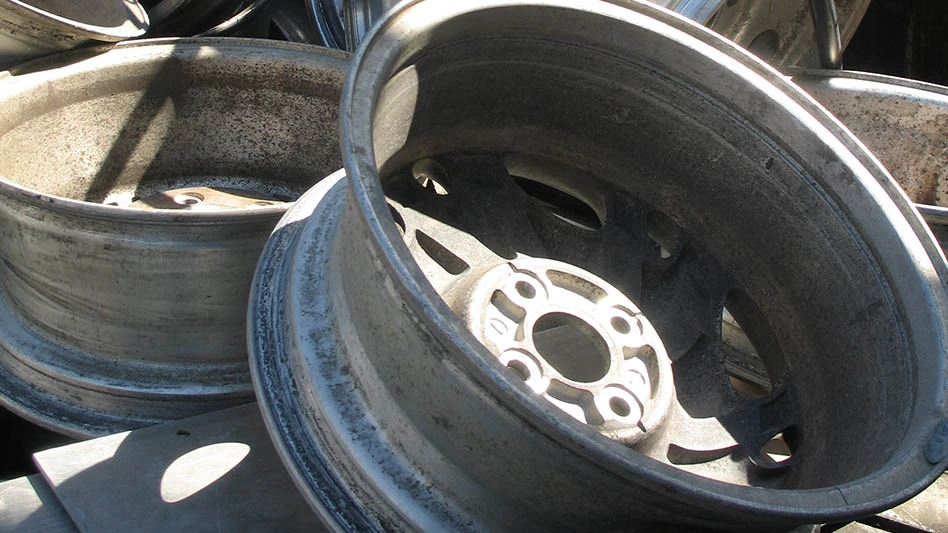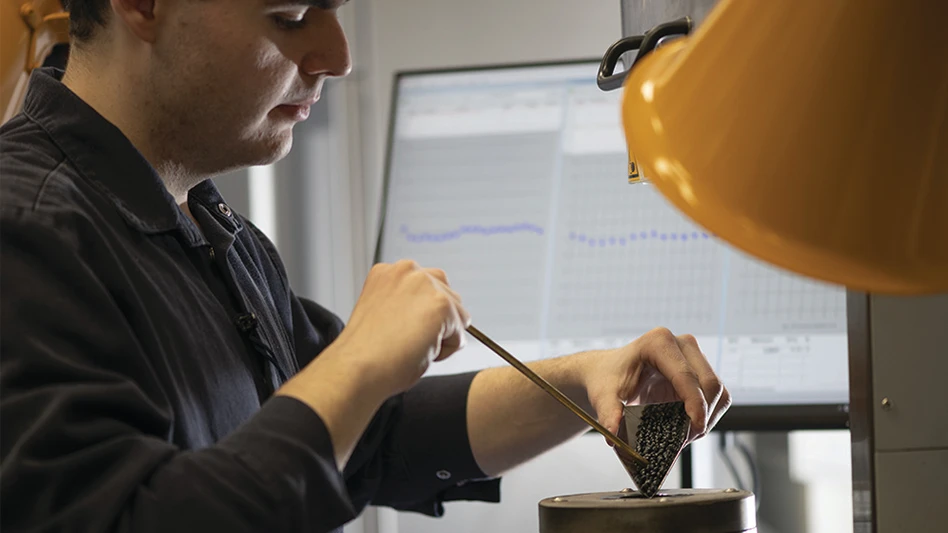
When Devang Vora’s older brother, Vijay, left India for the United States in the mid-1970s, they knew it would lead to business opportunities. It took more than a few years for Devang to discover that, for him, those opportunities would be connected to the recycling of paper and other materials.
By the 1990s Devang was learning the ins and outs of the paper mill and the paper products sectors in India and discovering how excess materials in North America and Europe may be just what the Indian subcontinent needed.
Through a combination of diligent investigation, creativity and investment in people and new ideas, Devang now oversees a family of companies that connects recycling markets around the world to his native India.The start of the loop
A recycling loop has to have a start, and for Devang it occurred several years after his older brother had left for the U.S. to pursue any and all business opportunities.
“My brother shifted to the USA in the mid-1970s,” recalls Devang. “In those days, going to America was one of the biggest achievements in life possible.”
Along with the optimism came some stark realities. “We did not have a business plan,” he acknowledges, and conducting international business before the era of email or mobile phones presented challenges. “I can remember some expensive pay phone calls and waiting at pay phones to accept a call.”
With “business being in our nature,” the Vora brothers overcame the challenges, and Devang says he soon found himself involved in cellulose and recovered fibre trading.
“I went to a paper mill in Uttar Pradesh [a state in northern India] to see what their requirements were, and they wanted CPO,” Devang says, referring to the computer printout grade of scrap paper that was common in the 1970s and 1980s.
“I was the first one to visit them who had a brother in New York, which was an ideal place to source CPO,” he continues.
With the right connection made, the next steps were logistical. “Container shipping was not common yet—it was only breakbulk,” Devang says. “The first lot we shipped of 10,000 [short] tons of CPO was breakbulk to Mumbai. Customs had trouble clearing it. Some of the bales had broken, so there was loose paper blowing around,” he recalls of the inauspicious start to his recycling career.
Dealing with shipping and customs snags is one lesson that came from the incident, but more important was the knowledge that there was a market to be made connecting scrap materials in other parts of the world to buyers in India.
The Vora brothers also traded in scrap metals and polyester cloth in the 1980s and Vijay ultimately settled into the plastics industry as his full-time profession.
Devang, on the other hand, established Victory Creations in Mumbai in the 1990s “as an independent paper trading company,” he says.
Victory Creations has engaged in many different activities in its two decades of existence and has spawned two spinoff companies. At the core of its efforts, however, has been attention to end rolls and stock lots.A true pulp substitute
It can be difficult for American or European recyclers to think of scrap paper as anything but feedstock for a mill pulper, but Victory Creations has a business model based on a very different concept.
The company seeks out damaged rolls of paper and end rolls—rolls of paper partially used by a printer but not completely down to the core.
Victory Creations brings the rolls into its facility in Bhivandi, India, near Mumbai, or sells them to any of numerous paper converters in Bhivandi.
Bhivandi hosts an enclave of entrepreneurs dedicated to converting unfinished and rejected rolls and unused sheets of paper into new products for the Indian market. Hrishikesh Vora, Devang’s son who is now CEO of Victory Creations, says the several dozen companies housed in a series of contiguous warehouses in Bhivandi are dedicated to this paper importing and conversion process, known collectively as the stock lots sector.
The enterprising Indian stock lots sector even finds uses for misprinted labels or packaging rejected by overseas consumer companies. Victory Creations converts such misprinted items into paper plates.
Hrishikesh says the district was formed within Bhivandi largely for tax reasons, as importers can avoid a hefty warehousing surcharge that exists in adjacent Mumbai.
Pricing in this market can depend on many factors, Hrishikesh says, including the grade and thickness of the paper or board, the weight and size of material left on a roll and the extent of the damage on some rolls.
Despite the existence of an entire neighbourhood devoted to stock lot conversion, “Stock lots are a relatively new entrant in the paper field,” Devang says, “as new as maybe the 1990s. We were among the pioneers.”
He continues, “We found homes for these printed paper stock lot rolls but not in America initially. What we saw was a niche market here in India, and we developed the market. These misprinted rolls can be cut into sheets or used for various applications like manufacturing paper plates, bags and packaging.”
The stock lots conversion process has kept materials out of the landfill and has brought affordable paper products to a cross-section of the population that may not be able to afford them otherwise.
“It is my passion for recycling and for saving Earth’s resources that led me to convert these rolls into paper plates and other products, and the market has turned out to be huge,” Devang says.
On the finished product side, the rolls now are sold not only to converters in India but also to neighbouring nations, such as Pakistan and Bangladesh.
The wider world

The Victory Creations name is well-known in Mumbai and in India, but it is one of three firms within a portfolio of companies the Voras own and manage.
UltraPrint bills itself as a “one-stop shop” for the paper requirements of printers in the Mumbai region, and Devang says it serves as a distributor for specialty paper products made in Europe and North America.
Its sister company PaperWorks has more fully involved the Vora family in the traditional mill supply aspects of the recovered fibre business. Devang describes PaperWorks as “the partnership office of Recycling UK,” a scrap paper packer and merchant in Tarporley, U.K.
Recycling UK Commercial Director Simon Marsden and the Voras established PaperWorks in 2009 to deal in all grades of recovered fibre and to help match European supply with consuming mill markets on the Indian subcontinent.
Recycling UK Ltd. was established in 1998 and originally was known as Fibre Recycling UK Ltd. The company has grown consistently in the number of tonnes it handles annually, abetted with the acquisition of Oswestry Waste Paper (OWP) in 2012. OWP collects and processes recovered fibre and other materials in Wales, the Midlands and northwest of England.
The PaperWorks partnership has allowed Devang and Hrishikesh to gain knowledge and to have a larger presence in the plastics recycling sector, which is likely to grow rapidly in India in the years ahead.
Devang expresses optimism about the future of his business for many reasons, including confidence in Hrishikesh, in India’s Prime Minister Narendra Modi and in the steadfast state of the recycling industry.
“Investing in Hrishikesh is finally paying off,” Devang jokes about his son, who has played a key role in expanding and shaping the global scope of the companies the Vora family oversees.
He also expresses optimism in initiatives launched by the Modi administration since it was elected to power in May 2014. “With an excellent prime minister and the help of the country today, we are going to see a massive growth stimulus in the next 10 years,” Vora says. “Prime Minister Modi is looking at developing this country as a major manufacturing force with his ‘Make in India’ initiative. This is going to be a strong growth engine driver. For this initiative to work, India has to grow in many ways, with infrastructure being first.”
Beyond the confidence in his son and in India’s leadership, Devang also expresses optimism about the future of paper recycling in India.
“We’ll see the consumption of paper going up, up and up, and recycling in India is in its infancy stages. This industry is bound to grow by leaps and bounds. I personally see a growth of 100% in the next few years in recycling and the collection thereof,” he says.

Although building international bridges has been the main approach the Vora family of companies has taken, Devang says he will not overlook opportunities within India itself.
“Domestic collection is one of the major opportunities, and I’m looking for tie-ups and joint ventures,” he comments. “I’m also looking at the waste management field. I believe western technology can be available through joint venture. I also believe that one frontier which needs to be developed, and it will, is fuel pellets for waste to energy. This is one of the massive sectors of opportunity.”
After more than 35 years in the recovered fibre business, Devang does not speak like a man who is ready to sit back and reflect on his career. Rather, he continues to identify opportunities that he and Hrishikesh can pursue to carve out a future for themselves and for their employees.
Thinking back to his early years in the business, Devang says, “I was young, full of energy and extremely ahead of my time. I fell a couple of times and skinned my knees only to get up again. Now, with my son coming into the picture, we are more focused.”
He says he greatly enjoys working with his son. “I’ve been given a rebirth, I would say. Hrishikesh is dynamic, enterprising, young, energetic, and he wants to do everything. I—his father, and my 40 years of experience—know just which direction to guide the train.”
Devang continues, “It’s a unique combination, and I believe it is working for us.”
Latest from Recycling Today
- New recycling grant program launches in Massachusetts
- Tire Recycling Foundation names executive director
- Dock 7 named 2025 Exporter of the Year at New Jersey International Trade Awards
- Waste Connections reports ‘better than expected’ Q1 results
- Commentary: How EPR is transforming the packaging industry
- Acerinox names new North American Stainless CEO
- Greenwave closes 2024 books with red ink
- Steel Dynamics nets $217M on record shipments





